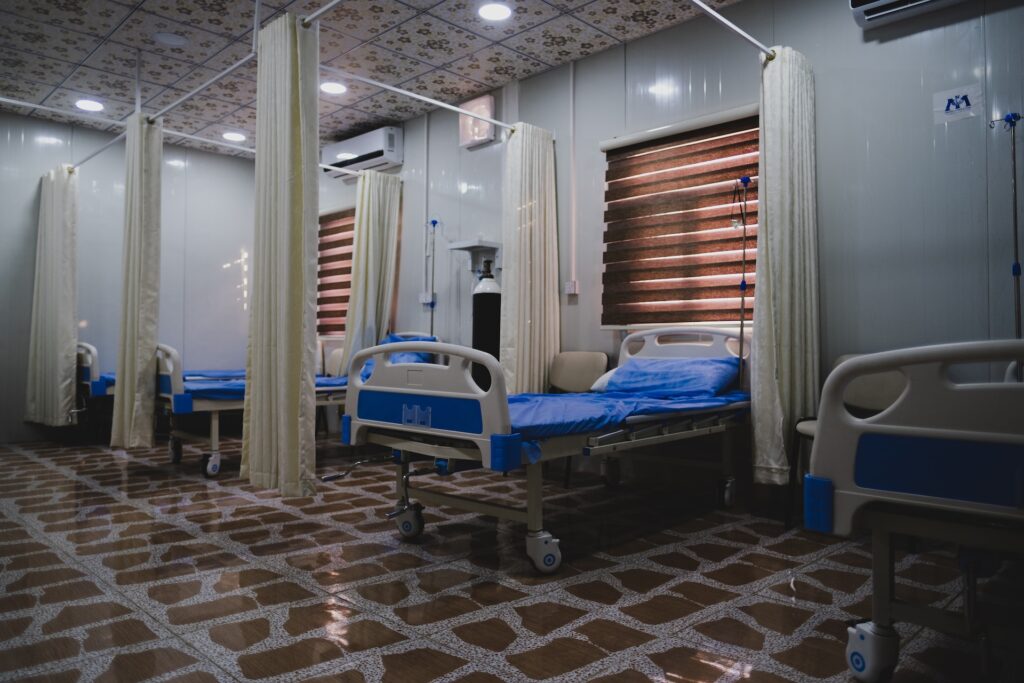Hospital Bedsores: Understanding the Risks and Causes

Hospital Bedsores: Understanding the Risks and Causes
Bedsores — also known as pressure ulcers — are a painful and potentially life-threatening condition. Florida’s aging population is at an increased risk of suffering from this condition. Though people can develop pressure ulcers in any environment, healthcare settings are frequently sites that have a high rate of bedsore incidents. Unfortunately, many cases aren’t discovered until the condition becomes serious.
If you or a loved one require care at a hospital or other healthcare facility in Florida, understanding the risks and causes of pressure injuries can help you prevent them. If you or your family member is already suffering from the condition and has had a recent hospital stay, knowing about the condition can help you pursue compensation for damages.
What Are Bedsores?
Pressure ulcers are skin wounds that cause a breakdown of skin and other underlying tissue, including muscles and bones. These injuries can be painful, with more severe cases potentially resulting in death. Bedsore severity can range from mild to severe.
Pressure Ulcer Symptoms
The first indication of a possible bedsore is skin discoloration, with mild pain or itchiness at the site. The wounds occur on the parts of your body that come into contact with surfaces, creating pressure or causing friction during movement. The body parts most likely affected include:
- Back of the head and ears
- Elbows
- Shoulder blades
- Spine
- Tailbone and buttocks
- Knees, ankles and heels
If a pressure ulcer is left untreated, it will progress in severity, with four different grades.
Grade 1
A Grade 1 bedsore is the mildest form. When you first develop a pressure injury, it may look like an area of skin discoloration at a location where your skin makes contact with a surface, such as a hospital bed. The site of the wound may itch or be slightly painful. It may also feel hard or spongy and warm to the touch.
Grade 2
A pressure wound that has progressed to a Grade 2 injury appears more damaged. You may have blistering or broken skin and experience skin loss on the surface and in the layer just beneath the surface.
Grade 3
A Grade 3 pressure ulcer is more painful. There is more damage that occurs at a deeper level. However, the injury does not impact the muscles or bones at this stage. The wound is usually an open gash, revealing the depth of damage.
Grade 4
The most severe bedsore level is a Grade 4 injury, resulting in skin tissue death. At this stage, the damage frequently spreads to the surrounding muscles and bones. The risk of complications is highest for Grade 4 pressure injuries.
Pressure Ulcer Statistics
Bedsores are the second most common hospital-diagnosed injury in the U.S., with an average of 2.5 million cases annually. Around 60,000 people die from pressure wound complications each year. Hospital-acquired bedsores occur in an average of 2.1 patients out of 1,000 in acute care facilities, with an average incidence rate of 10%-20% in all critical care units. Hospital-acquired pressure injuries lead to more than $26.8 billion in acute care costs annually.
What Causes Pressure Injuries?
The primary cause of bedsores is sustained pressure between a body part and a firm surface, such as a hospital bed. The pressure reduces blood flow to the skin, preventing the nutrients and oxygen vital to skin health. Increased moisture or friction can speed up and increase the damage.
While bedsores can develop quickly in some cases, they don’t develop in healthy adults sleeping in their beds. Your body automatically moves and shifts multiple times a night, preventing the conditions that allow bedsores to develop. Individuals at high risk can develop a higher-grade bedsore in a matter of hours, while it might take a couple of days for others to acquire a Grade 1 or 2 pressure injury.
What Are the Possible Complications?
Bedsores may not seem like they could be life-threatening. However, one typical result of bedsores is infection. The lack of blood flow means that white blood cells can’t get to the wound site to fight off potential infections, such as:
- Septicemia: If you have Grade 3 or 4 bedsores, an infection can travel from the wound site to your blood, resulting in septicemia (blood poisoning). The infection can also spread to your organs and cause a severe drop in blood pressure, known as septic shock.
- Necrotizing fasciitis: Open wounds are vulnerable to bacterial infections. Bedsores are particularly susceptible to the bacteria that cause tissue death, such as some strains of streptococci.
- Bone and joint: Infections at the injury site can spread to surrounding bones and joints, damaging tissues and causing significant pain. In severe cases, surgical removal of the infected bone or tissue is necessary.
- Gangrene: Gangrene is another bacterial infection. The lack of oxygen flowing in the blood to bedsore sites makes it a prime environment for the bacteria that cause gas gangrene.
Left untreated, pressure injuries can lead to severe complications that result in death.
Who Is Most at Risk?
A lack of mobility and poor health conditions are two of the most significant bed sore risk factors, making the elderly and hospital patients among those with the highest risk.
Mobility Factors
Decreased mobility inhibits the movements your body usually engages in to maintain blood flow throughout your body. You or your loved ones may develop hospital-acquired bedsores:
- While recovering from surgery, if you are unable to get out of bed
- While immobilized due to broken bones or a spinal injury
- While recovering from a brain injury that impacts your body’s mobility
Nerve damage or severe pain can also reduce your movements enough to cause bedsores unless hospital staff manually move you regularly.
Health Factors
Whether a disease or an accident leads to hospitalization, your health condition can increase your risk of pressure injuries. Common pre-existing conditions that increase the likelihood of developing bedsores include:
- Types I and II diabetes
- Kidney disease
- Heart disease
- Peripheral artery disease
- Chronic obstructive pulmonary disease
- Rheumatoid arthritis
- Multiple sclerosis
- Alzheimer’s disease
- Parkinson’s disease
Even if you are at an increased risk due to your health, healthcare providers are responsible for ensuring you get the movement needed to prevent pressure ulcers.
Normal aging often leads to poorer skin elasticity and blood flow. These two conditions increase the risk of bedsores in the elderly population. Older adults are also more likely to have other underlying health conditions.
What Can You Do if You Contract Bedsores?
If you contract hospital-acquired bedsores, your case may qualify for medical malpractice. Healthcare staff negligence is frequently the cause of pressure ulcers in a hospital or healthcare facility environment. An experienced attorney can assess the facts of your case to determine your available options for pursuing compensation. However, getting help before settling with the hospital or an insurance company is essential. Also, in cases when the patient dies due to hospital neglect, relatives of the victim can initiate legal action for wrongful death.
How Can Gordon and Partners Help?
The attorneys at Gordon and Partners have the skills, knowledge and experience needed to navigate Florida’s legal system in a medical malpractice case. We have a successful track record of obtaining just compensation for clients who have suffered at the hands of those who are charged with healing them. We will support and guide you throughout the legal process, but we won’t charge you unless we win your case. Contact us today for a free consultation.
Free Case Evaluation
Verdicts & Settlements
Jury verdict for the wrongful death of a 63-year-old man survived by his widow.
Jury verdict for the wrongful death of a 97-year-old woman at an ALF.
Recovery for family of infant killed during bath at babysitter’s home.
Related News
- Common Signs of Nursing Home Abuse You Need to Know
- What is Nursing Home Abuse and Neglect – and How Do They Differ?
- Preventing Bedsores: How Patients and Families Can Advocate for Better Care
- Frequently Asked Questions About Bedsores Lawsuits
- Choosing the Right Bedsores Lawyer: Factors to Consider
- Statute of Limitations for Bedsores Lawsuits: Don’t Miss Your Chance for Justice




 – Client Reviews
– Client Reviews